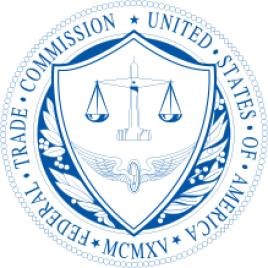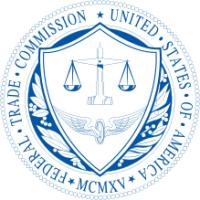Xlear Sues FTC Over Substantiation of Marketing Claims

A company sued the Federal Trade Commission (FTC) over its requirement for companies to substantiate claims about their products (Xlear, Inc. v. U.S. Federal Trade Commission, No. 2:25-cv-00484 (D. Utah)).
The lawsuit, filed June 18 in the U.S. District Court for the District of Utah, Central Division, by Xlear, Inc., asked the court for declaratory relief confirming that the FTC Act prohibits only marketing statements that are objectively “false” and/or constitute “unfair or deceptive acts” and does not require marketing claims to have substantiation for the statements. “Thus, the Federal Trade Commission cannot use an alleged absence of substantiation as a substitute for, or equivalent of, a false statement or an unfair or deceptive act,” the lawsuit said.
The lawsuit also seeks confirmation that when bringing an enforcement action under the FTC Act, “the FTC bears the burden to prove, by clear and convincing evidence, that any marketing statement is objectively false and/or constitutes ‘unfair or deceptive acts’ and, thus, an alleged lack of substantiation, standing alone, does not state a cognizable claim for violation of the FTC Act.”
Alternatively, if the court determines marketing claims must have substantiation, the lawsuit asks for confirmation that the FTC cannot require “randomized controlled clinical trials (RCT) as proof that the statement is not false and/or constitutes ‘unfair or deceptive acts.’”.
In October 2021, the FTC had filed a lawsuit against Xlear alleging the company’s statements that its nasal spray could serve as an effective, additional layer of protection against COVID-19 lacked sufficient clinical data to support the claim. Xlear countered the FTC lacked statutory authority to require clinical data under the U.S. Supreme Court decision in Loper Bright Enters. v. Raimondo. This March the Department of Justice asked the court to dismiss the FTC lawsuit.
“Notwithstanding the FTC’s dismissal of the prior lawsuit, the FTC’s substantiation scheme continues to unlawfully harm the Plaintiff,” the June lawsuit said. “Most importantly, while the dismissal protects the Plaintiff from additional lawsuits for any claims brought in the prior case and claims that could have been brought in that case, it offers no protection from the FTC filing a lawsuit for any statements the Plaintiff (or any others) might make in the future. Additionally, the dismissal provides Plaintiff (nor any other party) no guidance as to what the FTC can versus cannot, or will versus will not, require for compliance with the FTC Act. Moreover, any administrative action the present administration might or might not take cannot bind future administrations. The chilling effect of this uncertainty on the Plaintiff is concrete and will be redressed by the declaration Plaintiff seeks,” the lawsuit said.
Xlear noted that its “nasal spray’s product packaging has always carried a research-based graphic showing how the nasal spray blocks bacterial adhesion” and that during the COVID-19 pandemic the company “became aware of a body of evidence showing how Xlear nasal spray similarly blocked the adhesion of SARS-CoV-2, the virus that causes COVID-19, with the effect of lessening the effects of the virus.”
“Other published research has found that saline-based nasal sprays, including Xlear, are effective at reducing the risks of respiratory infections, including COVID, and reducing the duration and severity of upper respiratory infections when used by those already infected,” the lawsuit said.
“Plaintiff is not now making these and other research-backed statements to the public,” the lawsuit said, “out of fear of yet another FTC enforcement action against the Plaintiff alleging lack of substantiation under the FTC Act. Plaintiff’s inability to make such statements is causing real and concrete harm to Plaintiff, and the public,” because it reduces the ability of plaintiff to educate consumers about its products, it reduces the ability of plaintiff to sell its products, and limits plaintiff’s First Amendment right to free speech.
The lawsuit said that “delayed review would cause hardship to the Plaintiff, who will continue to self-censor and deprive the ‘marketplace of ideas’ of important, health-related information so long as this dispute is unresolved, judicial intervention would not inappropriately interfere with further administrative action, but would in fact provide much needed clarity on a critical and purely legal question, and given the purely legal nature of this dispute, the courts would not benefit from further factual development of the issues presented.”
In addition, “any administrative remedies would be futile because the FTC’s position on the substantiation standard challenged herein is well-established and will not change absent judicial intervention, and any remedy that might be provided through administrative proceedings is inadequate,” the lawsuit said. “Additionally, the issues presented here involve serious constitutional questions requiring immediate judicial intervention.”
“Simply put, Plaintiff should not be forced into the Hobson’s choice of either refraining from marketing its products as it wishes or doing so and suffering the significant burdens of a future enforcement action – having already suffered the incredible expense and other harms of the prior case – in order to obtain a determination of this issue,” the lawsuit said.
The lawsuit noted that “in Loper, the Supreme Court explicitly rejected Chevron deference to agency interpretations. Under Loper, a court must reject an agency’s statutory interpretation unless the court, ‘after applying all relevant interpretive tools, concludes’ the interpretation is the best reading of the statute. In the business of statutory interpretation, if it is not the best, it is not permissible.”
The lawsuit contended the Loper analysis works hand in glove with the Supreme Court’s decision in West Virginia v. EPA, which held that “agencies have only those powers given to them by Congress, and ‘enabling legislation’ is generally not an open book to which the agency may add pages and change the plot line.”
The lawsuit said this means “agencies are constrained to implementing statutes as they are enacted, not as they are re-imagined by the agency. As a result, under Loper, a court reviewing an agency action must first examine the statute to determine if the statute is clear on its face.”
“If the reviewing court determines the words are ambiguous, the court must then go back to the words and, using all the court’s tools of statutory interpretation, determine what is the ‘best’ meaning of the statutory language. If the agency action in question does not comport with what the court determines is the best reading of the statute, then the court must reject the agency’s interpretation,” the lawsuit said, citing Loper.
“The FTC’s interpretation that the FTC Act requires substantiation fails all these tests outright,” the lawsuit contended. “First, the relevant language in the FTC Act is not ambiguous. Here, ‘false’ (the contrapositive of ‘truth’) is a well understood concept that needs no interpretation. The same is true of the term ‘unfair.’”
The lawsuit contended the specific language of the FTC Act “simply does not require substantiation because the word ‘substantiation’ never appears in these provisions. Nor do these provisions include any words that might suggest a substantiation requirement—such as ‘proof,’ ‘test,’ ‘testing,’ ‘RCT,’ ‘basis,’ ‘evidence,’ ‘study,’ ‘data,’ and the like. Rather, the plain language of the FTC Act prohibits ‘unfair or deceptive acts,’ ‘false advertisements,’ ‘deceptive acts or practices.’ The statute never mentions the word ‘substantiation,’ let alone a requirement that substantiation is a prerequisite to lawful claims,” the lawsuit said.
“On this precise point the Seventh Circuit Court of Appeals in FTC v. QT, Inc. held: Nothing in the Federal Trade Commission Act, the foundation of this litigation, requires placebo-controlled, double-blind studies. The Act forbids false and misleading statements, and a statement that is plausible but has not been tested in the most reliable way cannot be condemned out of hand,” the lawsuit said.
The lawsuit added that even if the court finds the sections ambiguous, “applying the tools of statutory interpretation it is obvious that the FTC’s interpretation is far from the ‘best’ interpretation. Perhaps the best evidence that the FTC’s substantiation scheme is not the best reading of Sections 5(a) and 12 is that for over 60 years the FTC itself did not interpret the statute this way.”
“The second, and most obvious, proof that the FTC’s interpretation requiring substantiation is not the ‘best’ is that the specific term, ‘substantiation,’ does not appear in the statutory language. Neither do any of its derivatives or synonyms. Nor does the statute contain anything remotely suggesting the underlying concept. If Congress had intended the FTC Act to include substantiation it could and would have written that requirement into the law. It did not,” the lawsuit said.
The lawsuit also contended “the concept of whether a claim is substantiated is fundamentally different from whether it is false or deceptive. Not all claims that lack substantiation are false or deceptive. Indeed, it is widely acknowledged, from both a scientific and common-sense standpoint, that claims can be true but unsubstantiated, and false but substantiated.”
In addition, the FTC’s interpretation should be rejected as not “best” because “it violates the maxim ‘to avoid an interpretation of a federal statute that engenders constitutional issues if a reasonable alternative interpretation poses no constitutional question’” (Gomez v. United States).
“The FTC’s substantiation requirement violates the First Amendment because, for example, it has the potential to punish protected speech that is neither false nor deceptive,” the lawsuit said. “A reading of the FTC Act that prohibits every unsubstantiated claim on every product, regardless of whether the claim is true, and irrespective of the type of product at issue or the circumstances presented, is overbroad and cannot survive Constitutional scrutiny,” the lawsuit contended.
“The FTC’s interpretation also violates the Equal Protection Clause by improperly shifting the FTC’s burden of proof onto defendants,” the lawsuit added. “In substantiation enforcement actions, the FTC begins by filing a complaint (either in federal court or administratively). That complaint alleges that the defendant made certain claims without adequate substantiation, which the FTC alleges violated the FTC Act.”
“The FTC’s mere pleading lack of substantiation flips the burden and compels the defendant to prove substantiation. Simply put, in cases to date (prior to this Loper challenge), if the FTC alleges that the defendant lacks the FTC-requisite level of substantiation, guilt is assumed, even though the government has proven nothing,” the lawsuit said.
“But any assumption that a claim is false or misleading simply because it is not substantiated to the degree the FTC believes is required is inherently flawed. The mere fact that a statement lacks a specific kind of substantiation does not mean the statement is ‘false,’ ‘deceptive,’ or ‘unfair,’” the lawsuit said. “Nothing in the FTC Act authorizes the shifting of the burden of proof in FTC substantiation cases.”
“In order to comport with the requirements of Equal Protection, the burdens in FTC enforcement cases must be reset to make clear that the agency bears the burden of proving the elements of the statutory violation by a preponderance of the evidence; and, the FTC Act simply does not allow the FTC to meet its burden by merely alleging or even showing a lack of substantiation,” the lawsuit said.
“In sum, the FTC’s substantiation scheme reads into the FTC Act words and concepts that simply do not exist in the law; defies the FTC’s own, historical interpretation of the statute; violates both the First Amendment and Equal Protection clauses of the Constitution; flies in the face of the legislative history of the FTC Act; and imposes requirements that history shows the Congress could not possibly have sought to enact,” the lawsuit concluded. “As such it is not the ‘best’ reading of the statute as required under Loper. In fact, it isn’t a reading of the law, it is a fiction of FTC’s own invention. Were it a standalone book it should be called ‘The World According to the FTC.’”



